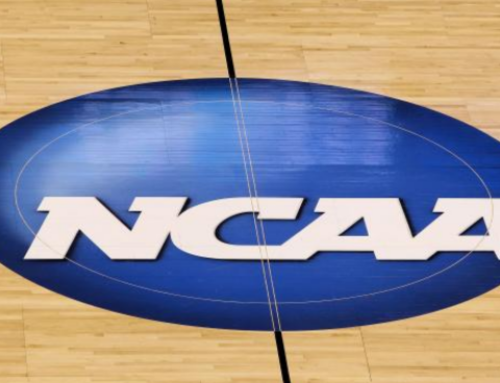How To Be More Successful At Your Sport
If you’re spending some time to read this, you’re already on the right track. As we look for improvements as an athlete or strive to obtain a goal that’s a level up, there exists a gap—the gap between where we are and where we would like to be. As we progress, different gaps will require different skills in an acquisition. There is an old saying, what got you here, won’t get you there.
My good friend and mental skills coach, Collin Henderson, always says, “You can train your body, your craft, and your mind.” Most athletes I meet are already doing the first two fairly well. They train in the off-season to build their strength, stamina, and speed. They train their craft by attending skills camps, clinics, and personal coaching sessions related to their sport. Rarely is the mind being trained anywhere close to the first two, and sometimes not at all. Your mindset will lead to your skillset.
When it comes to improving your physical conditioning, most athletes I know are getting enough exercise, but likely not enough time in the recovery room. Recovery is one low hanging fruit where you can create a bountiful advantage. If you’re in season, you don’t want to overstrain or risk injury. If you’re out of season, create a plan that can get your body in the condition you desire for competition.
Your craft, your sport, your techniques, and your skills are probably getting adequate attention. However, as an athlete, I know that there are always skillsets that we can improve upon. I’ll talk more about how to approach this in a moment in regards to gathering feedback.
Your mindset is what shapes our performance. A poor mental framework will lead to poor performance and a picture we’ll need to re-frame. When it comes to opening the door to new skill levels, I’m going to share with you three keys:
Failure, Feedback, and Follow Through
Failure. We all have failures, and we all tend to want to hide them. We all have them because we try. We conquer them by growing through them and not letting them define us. One of the core elements in developing a mindset that gets you where you want to be is reducing the time between failure and the next attempt, try, or rep.
Having a routine to get back on track when things don’t go well is the most effective way to prepare and execute under pressure. This routine shortens the cycle from mistake to next. Great athletes know what they are going to do next, whether the last moment was good or bad. Think progress over perfection as we can make progress today, though perfection may be unreachable. The better we are able to do this, means more reps and mastering more difficult skills in a shorter time.
Feedback. Along with mentally proceeding to the next rep, next play, we must learn to seek feedback. To seek feedback is to seek improvement. One of the most powerful forms of feedback is our own self-reflection. While ego often can cloud your clarity, the more you can be honest with yourself, the quicker you’ll be reaching what you are after.
When I asked a Major League Baseball pitcher about the importance of being coachable at the big league level, he stressed the difference between seeing and feeling. As an athlete, he felt what he was doing but could not externally see with his eyes what he was doing in real-time. Even self-perception with video may cloud how to solve a problem. The coach can see, but he cannot feel the athletes pitch, release, or follow through. It is between feel & see that coach-ability and receiving feedback lead to progress.
Learn to seek feedback, apply what you can make you better, and learn from every failure. Above when I mentioned skillsets to develop, this is a simple task of coaches and teammates. What area(s) can I improve? Seek it, knowing it won’t always be easier to hear, and seek it to help fuel you forward.
Follow Through. Just as in a swing, a throw, or a serve, follow-through is full execution. Following through is also a skill to hone. It starts with you and doing what you say you are going to do. If you are going to working on something, know when you are going to do it. Schedule it, write the time and place down. This is the backswing to the follow-through.
Every time you do the thing or training session you say you are going to, you build. You build your mindset. You build confidence, you build your ability to follow through on what you say you are going to do. When you learn to follow through on your own, you’ll be exceptional at following through when needed by your team. Both you and your teammates need you to follow through. Make a plan, conquer it. Follow through.
Read More:
RECOMMENDED FOR YOU
MOST POPULAR
How To Be More Successful At Your Sport
If you’re spending some time to read this, you’re already on the right track. As we look for improvements as an athlete or strive to obtain a goal that’s a level up, there exists a gap—the gap between where we are and where we would like to be. As we progress, different gaps will require different skills in an acquisition. There is an old saying, what got you here, won’t get you there.
My good friend and mental skills coach, Collin Henderson, always says, “You can train your body, your craft, and your mind.” Most athletes I meet are already doing the first two fairly well. They train in the off-season to build their strength, stamina, and speed. They train their craft by attending skills camps, clinics, and personal coaching sessions related to their sport. Rarely is the mind being trained anywhere close to the first two, and sometimes not at all. Your mindset will lead to your skillset.
When it comes to improving your physical conditioning, most athletes I know are getting enough exercise, but likely not enough time in the recovery room. Recovery is one low hanging fruit where you can create a bountiful advantage. If you’re in season, you don’t want to overstrain or risk injury. If you’re out of season, create a plan that can get your body in the condition you desire for competition.
Your craft, your sport, your techniques, and your skills are probably getting adequate attention. However, as an athlete, I know that there are always skillsets that we can improve upon. I’ll talk more about how to approach this in a moment in regards to gathering feedback.
Your mindset is what shapes our performance. A poor mental framework will lead to poor performance and a picture we’ll need to re-frame. When it comes to opening the door to new skill levels, I’m going to share with you three keys:
Failure, Feedback, and Follow Through
Failure. We all have failures, and we all tend to want to hide them. We all have them because we try. We conquer them by growing through them and not letting them define us. One of the core elements in developing a mindset that gets you where you want to be is reducing the time between failure and the next attempt, try, or rep.
Having a routine to get back on track when things don’t go well is the most effective way to prepare and execute under pressure. This routine shortens the cycle from mistake to next. Great athletes know what they are going to do next, whether the last moment was good or bad. Think progress over perfection as we can make progress today, though perfection may be unreachable. The better we are able to do this, means more reps and mastering more difficult skills in a shorter time.
Feedback. Along with mentally proceeding to the next rep, next play, we must learn to seek feedback. To seek feedback is to seek improvement. One of the most powerful forms of feedback is our own self-reflection. While ego often can cloud your clarity, the more you can be honest with yourself, the quicker you’ll be reaching what you are after.
When I asked a Major League Baseball pitcher about the importance of being coachable at the big league level, he stressed the difference between seeing and feeling. As an athlete, he felt what he was doing but could not externally see with his eyes what he was doing in real-time. Even self-perception with video may cloud how to solve a problem. The coach can see, but he cannot feel the athletes pitch, release, or follow through. It is between feel & see that coach-ability and receiving feedback lead to progress.
Learn to seek feedback, apply what you can make you better, and learn from every failure. Above when I mentioned skillsets to develop, this is a simple task of coaches and teammates. What area(s) can I improve? Seek it, knowing it won’t always be easier to hear, and seek it to help fuel you forward.
Follow Through. Just as in a swing, a throw, or a serve, follow-through is full execution. Following through is also a skill to hone. It starts with you and doing what you say you are going to do. If you are going to working on something, know when you are going to do it. Schedule it, write the time and place down. This is the backswing to the follow-through.
Every time you do the thing or training session you say you are going to, you build. You build your mindset. You build confidence, you build your ability to follow through on what you say you are going to do. When you learn to follow through on your own, you’ll be exceptional at following through when needed by your team. Both you and your teammates need you to follow through. Make a plan, conquer it. Follow through.
Read More:










